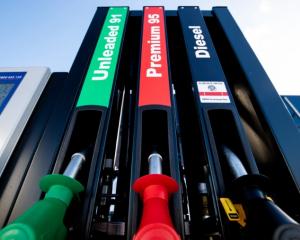
China's 1.3 billion population and annual economic growth rate of more than 9% makes an alluring prospect for New Zealand businesses but there exist complex legal and financial structures, overseen by a Communist Government, with which to come to terms.
While the prospects are enticing, the Chinese requirements for paying a number of taxes, value added tax (VAT), customs certification and foreign exchange controls - at a time when its Government is embracing the free market and developing its own policies - can be daunting, frustrating and even appear to be bordering on obstructive.
The Deloitte Chinese Services Group has been operating around the world for more than a decade, initially liaising with United States clients entering into Chinese trade, but increasingly now assisting companies throughout the world.
In 2006, Deloitte New Zealand established its China Tax Desk team in Auckland, at present representing more than 20 companies from around the country, headed by Deloitte associate director, tax and China specialist Jenny Liu.
Mrs Liu, in Dunedin earlier this week for a presentation to southern businesses, was raised in China and graduated from a university in Beijing in 1995 as a chartered accountant specialising in tax, before transferring from Deloitte's Beijing office and moving to New Zealand in 1999.
Her advice to newcomers, be they New Zealand-based importers or exporters to China, is simple: "develop a business plan and strategy and begin working on building up contacts".
Unlike New Zealand's tax, GST and foreign exchange regimes, China's are far more complex and bureaucracy-laden.
"You need to have the contacts, starting with Chinese people here who are interested in business then making a visit to China itself," she says.
For anyone with little or no exposure to the Chinese community, the New Zealand China Trade Association has several contacts available, which for a first step could lead to attending trade fairs and expos in China, such as the Guangdong trade fair in April, one of China's biggest expos which attracts millions of visitors.
The obvious conclusion many New Zealand companies come to is to have a subsidiary or shell company represent them on the ground with a China address, which is good for maintaining brand exposure and for forging close personal links with local suppliers.
However, the reality is having to fork out a "minimum capital requirement" ranging from $US62,000 ($NZ83,000) up to $US290 million, plus costs to lease, outfit and employ staff for an office, then spend up to three months waiting for formal company registration status to be approved.
"Really, I think many people would not want to have that [much capital] tied up for so long," Mrs Liu said.
VAT, similar to New Zealand's GST component, is 17% and applies only to general goods and some services.
Business tax is normally 5%, but can not accrue credits, while the construction, transport, post and telecommunications sector tax is 3%, but the entertainment and music sectors, bars, tea houses and golf courses pay 20% in business taxes.
The income tax rate has been dropped from 33% to 25% recently.
Tax incentives have changed since January this year for foreign investment.
They are now specifically for high technology companies as opposed to manufacturing companies.
"There are often misunderstandings about who is liable for taxes. People need to investigate to make sure there are no [unwelcome] surprises," she said.
Mrs Liu said few importers or exporters would become directly involved with employee taxation in China, which ranges from 5% to 45% in a scaled system similar to New Zealand's.
For major companies with a presence in China, as opposed to smaller importers/exporters, foreign exchange controls, through China's powerful State Administration of Foreign Exchange, can be a major hurdle, especially when single transactions above $US200,000 are involved.
"China's foreign exchange controls are very rigid compared to New Zealand," she said.
Often a frustrating "catch 22" situation will develop when Chinese Customs hold goods, awaiting confirmation of payment before a clearance is forthcoming, but local traders selling the goods will not confirm payment until the goods are released.
"Banks can be involved to issue a letter of credit to the supplier, to release the goods, which then gets Customs documentation," Mrs Liu said.
New Zealand companies have had to wait anywhere from one to two weeks in the past to have goods released, she said, but China has recognised the problem and under the FTA is now targeting a 48-hour clearance timetable to "streamline procedures" which can otherwise cause some anxiety.
Many larger operations will directly employ a customs agency to track and get goods released, while smaller firms have the opportunity to hire individual, registered, Customs agents, a ploy which Deloittes recommends.
Mrs Liu did not shy away from addressing the question of bribery.
She agreed there was a perception in the West that bribery was part and parcel of sealing business deals. However, the reality was bribery "was the not the general practice".
"People need to make a stand. If anyone is asked for a bribe they should be thinking twice about whether to be doing business with that person," Mrs Liu said.
At present the "hot topic" under scrutiny is the the Chinese Government's Catalogue Guiding Foreign Investment in Industry. The third version since 1995 has just been released, covering 464 categories under three sections - "encouraged" business, "restricted" and "prohibited".
The catalogue provides Chinese Government officials with guidance on the approval of foreign investment and regulation and policy development - setting foreign ownership limitations on specific investment projects.
For the foreign investor the catalogue classifies the project, the level of ownership and ultimately the type of allowable incentives, all of which will define the complexity and timetable of the approval process.
She said for many New Zealand companies there was a myriad of misconceptions surrounding trade in China, such as the benefits of its cheap labour and manufacturing abilities.
She stressed New Zealand companies had to be acutely aware Chinese Government policies were changing and could affect their business plans.
The Government wants the focus on manufacturing mass low-value products to be replaced eventually by production of higher technology and value-added products - which could displace companies relying on cheap mass produced items, she said.
It has been estimated that one-third of the manufacturers at present operating in the southern Guangdong province - renowned for its cheap manufacturing - will be closed with three years, Mrs Liu said.
She noted as China's economy grew, wages were increasing, the RMB (currency) had appreciated 20% on three years ago, inflation was becoming a real concern and manufacturing costs were generally accelerating, which would impact on margins in the future.
China's spectacular annual growth rates, near 10%, have caused alarm and rising concern of a bubble effect and its impact on global economies, already under stress from the world-wide credit crunch sparked by the United States sub-prime mortgage debacle.
Mr Liu said China was also facing rising energy demands, environmental problems, uneven regional development and trade imbalances so severe they threatened relationships with Europe and the US.
Its preference for developing high technology industries includes establishment of research and development centre and adding new service industries to its catalogue, including logistics and business process outsourcing.
The FTA has delivered a vast array of tariff reductions for both China and New Zealand.
Starting on October 1 and rolling out until 2016, China exports will be 100% tariff-free coming to New Zealand and New Zealand 96% free, because processed wood and paper exports come under World Trade Organisation agreements.
New Zealand Trade and Enterprise, on its seven-week-old ChinaFTA.govt.nz website, has supplied a tariff-finder tool covering reductions during the next eight years on more than 7000 different items.
Mrs Liu said companies had to pay attention to the tariff changes and plan ahead on how the tariffs would affect them.
This week, the Ministry of Foreign Affairs and Trade and New Zealand Trade and Enterprise ran a two-day seminar in Dunedin, attracting more than 130 registrations, to promote the FTA and deliver a "how to" and overview of trading in China, which included Mrs Liu's presentation.
In spite of the Government wanting to get this message out, media could attend only on the condition they did not report proceedings, an unusual stance which only added fuel to the four-year-old fire that too much of the FTA was negotiated beyond closed doors.
Minister of Economic Development Pete Hodgson, who hosted a ministerial breakfast on day two of the seminar, said in his speech the tariff reduction gave New Zealand businesses a "competitive head start" in the fastest-growing economy in the world.
Mr Hodgson noted New Zealand was the first developed country to recognise China had established a market economy system, but Mrs Liu cautioned Chinese Government market policy was changing and New Zealand businesses had to be aware of the effect.
The FTA has been far from universally embraced, with several unions and manufacturers and political factions highlighting that it meant the loss of New Zealand manufacturing jobs and a flood of Chinese goods on our markets, against which importers will be unable to compete.
"Had we not got in first, our exporters would have faced not the advantages we now have but the disadvantage that others would have gained preferential entry before New Zealand," Mr Hodgson said.
China had a growing middle class of 100 million and another 150 million with increasing disposable income which would fuel demand for New Zealand goods, he said.
Mr Hodgson reiterated the mounting presence of Government agencies in China, including NZTE's North Asia Beachheads Advisory Board, to help New Zealand companies.
In addition to the larger NZTE offices in Beijing, Shanghai and Guangzhou, four more satellite offices would be opened in China during the next four years and the Government was establishing a New Zealand Concept Centre for businesses to use in Shanghai.
He estimated that during the Shanghai Expo in 2010, up to 17 million people would visit the New Zealand pavilion, which had been quadrupled in size from an earlier expo, and hailed the Kiwi Expatriates Abroad organisation with its "ready-made network of business contacts".
Mrs Liu said while Singapore was at present vying with historic Hong Kong to become the recognised financial clearing house for Southeast Asia, similar institutions were on offer from Beijing and Shanghai.
"If you need regional representation, Hong Kong is still a good option, but for China itself, Beijing and Shanghai are worth exploring," she said.
New Zealand businesses should not become fixated on China's population of 1.3 billion, a popular misconception that there was a large consumer base just waiting to be tapped.
Aside from vast distances and distribution issues to overcome, Mrs Liu highlighted that retail growth was mainly in the larger cities, where recent data has revealed a 70% increase in domestic household spending.
"China is expected to overtake the United States as the second-biggest luxury goods market, after Japan," she said.
She noted that some of the best characteristics of New Zealanders could work against them in dealing with Chinese traders, being too trustworthy and too quick to show their hand in business negotiations.
"This is where having established good contacts is crucial," she said.
"For smaller New Zealand companies going to China, it's best to arrange a trade first, before deciding to go further, to get a feel for the overall situation," she said.
NZTE spells it out simply on the website - "Forget about trying to do it yourself".
The simplest place to start was to use China-based advisers as China's markets, rules and regulations were changing so quickly it was "virtually impossible" for consultants and advisers to keep up, unless they were locally based.
"At some stage you are likely to need the advice of lawyers, accountants, interpreters and translators, business entry consultants, human resource advisers and real estate agents," NZTE said.
Mrs Liu said that beginning in China was no different from any business start-up scenario and professional advice should be sought from the outset.
With China, it remained crucial to find someone to act as an agent on a company's behalf, she said.












